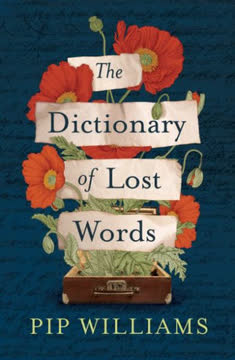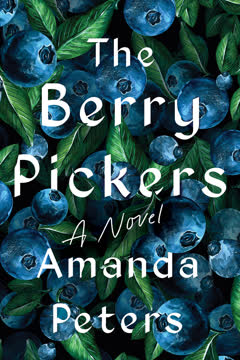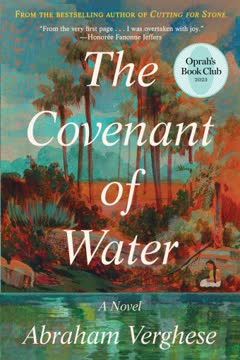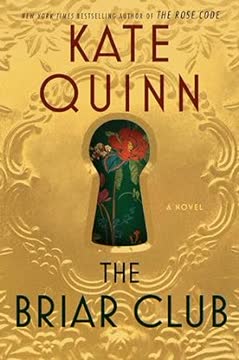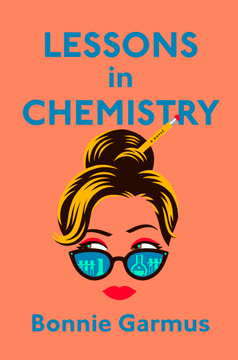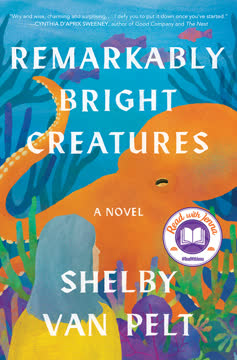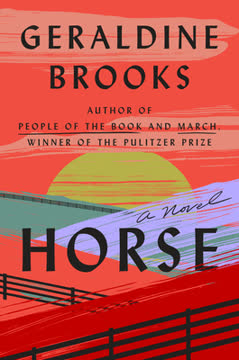Plot Summary
Words in the Fire
Esme's earliest memory is of sitting on her father's lap in the Scriptorium, the shed where the Oxford English Dictionary is being compiled. She watches as her father burns slips of paper—words deemed unworthy or incomplete—one of which bears her late mother's name, "Lily." The act is both a literal and symbolic erasure, teaching Esme that some words, and by extension some people, are considered less important. This moment sears into her, blending the pain of personal loss with the realization that language itself can be an instrument of exclusion. The fire becomes a motif for what is lost, what is remembered, and what is deliberately forgotten.
Beneath the Sorting Table
Esme grows up under the sorting table, unseen by the men who sort and define the English language. She listens, learns, and occasionally collects slips that fall to the floor—words that might otherwise be discarded. The Scriptorium is both sanctuary and cage, filled with the hum of scholarly work but also the quiet violence of omission. Esme's friendship with Lizzie, the housemaid, offers her a different perspective on language: the words of women, the working class, and the unrecorded. The sorting table is her vantage point, a place of both invisibility and discovery.
Lost and Found: Bondmaid
One day, a slip with the word "bondmaid" lands in Esme's lap. She learns it means a female slave or servant, a word with deep resonance for the women around her. Realizing that such words are often neglected or discarded, Esme begins to collect them, hiding them in Lizzie's trunk. This act of quiet rebellion marks the start of her lifelong quest to rescue the words—and experiences—left out of the official record. "Bondmaid" becomes a symbol of all that is overlooked, especially the lives and labor of women.
Lizzie's Trunk of Secrets
Lizzie's trunk, hidden under her bed, becomes the repository for Esme's growing collection of lost words. The trunk is filled with slips, letters, and small treasures, each representing a story or a life that might otherwise be erased. Lizzie, herself a "bondmaid" in many senses, understands the importance of keeping these words safe. The trunk is both archive and altar, a place where the overlooked and discarded are honored. It is here that Esme's alternative dictionary begins to take shape, one that values the language of women and the marginalized.
Growing Up Among Words
As Esme matures, she becomes more involved in the work of the Scriptorium, learning from her father and the other lexicographers. She is acutely aware of the gendered boundaries that shape her world—what she is allowed to touch, say, or become. Her godmother, Ditte, encourages her curiosity and independence, gifting her books and stories that expand her horizons. Yet, Esme also feels the sting of exclusion, both from the Dictionary and from the social world around her. Her education is as much about what is missing as what is present.
The Scriptorium's Invisible Girl
Esme's presence in the Scriptorium is tolerated but never fully acknowledged. She is both participant and outsider, her contributions unrecognized by the men who shape the Dictionary. The arrival of new assistants, the loss of old friends, and the constant churn of words reinforce her sense of invisibility. Yet, Esme finds power in her marginality, using it to collect the words and stories that others overlook. Her relationship with Lizzie deepens, and together they create a small world of their own, one where their voices matter.
Women's Words, Men's Dictionary
Esme becomes increasingly aware that the Dictionary is a product of its time—shaped by the biases of its (mostly male) editors and contributors. Words used by women, or that describe women's experiences, are often omitted or defined in ways that diminish their significance. Esme's collection grows to include words from the market, the kitchen, and the streets—words that capture the realities of women's lives. She begins to question the authority of the Dictionary and dreams of creating her own, one that reflects the full spectrum of human experience.
The Suffragettes and the Silenced
The women's suffrage movement surges around Esme, bringing new words and new possibilities. She befriends Tilda, an actress and suffragette, and is drawn into the world of political activism. The struggle for the vote is mirrored in the struggle for linguistic recognition; both are battles over who gets to define reality. Esme witnesses the violence and sacrifice of the suffragettes, as well as the resistance of those who fear change. The Dictionary's omissions become a metaphor for the broader silencing of women's voices.
Love, Loss, and Language
Esme's personal life is marked by love and loss: her deep bond with Lizzie, her complicated relationship with her father, her romance with Gareth, and the pain of giving up her child for adoption. Each relationship is mediated by language—by the words spoken, unspoken, or lost. Esme's grief is compounded by the knowledge that the words to describe her experiences are often missing from the Dictionary. She turns to her collection for solace, finding in it a record of her own life and the lives of those she loves.
The Dictionary's Gaps
As the Dictionary nears completion, Esme becomes obsessed with its gaps—the words and meanings that have been left out. She discovers that "bondmaid" is missing, a fact that causes consternation among the editors. Esme realizes that the official record will always be incomplete, shaped by the prejudices and limitations of its creators. She decides to make her own dictionary public, printing a small volume of "Women's Words and Their Meanings" with Gareth's help. This act is both a celebration and a lament, an acknowledgment of what has been lost and what can still be saved.
War and the Weight of Words
The outbreak of World War I brings new words, new losses, and new challenges. The Scriptorium is depleted as men go to war, and Esme volunteers at the hospital, witnessing firsthand the trauma and silence of wounded soldiers. Language becomes both a tool and a barrier—capable of expressing pain, but also of concealing it. Esme's correspondence with Gareth, now at the front, is filled with longing and fear. The war exposes the inadequacy of words to capture the full horror of experience, but also their necessity in making sense of it.
The Price of Silence
Esme endures profound losses: the death of her father, Gareth's death in the war, and the ongoing absence of her daughter. She is haunted by the words she cannot say, the stories she cannot tell. The Dictionary's silences become personal, echoing her own. Yet, Esme finds strength in her friendships with Lizzie and Ditte, and in her commitment to preserving the words of the forgotten. She learns that silence has a price, but so does speaking out.
The End of the Scriptorium
The Scriptorium is dismantled, its contents moved to the Old Ashmolean. Esme and Lizzie pack up the slips, mourning the end of an era. The shed that once housed the making of the Dictionary becomes just a garden shed, its magic gone. Yet, the work continues elsewhere, and Esme's collection of lost words remains. She decides to leave her trunk with Lizzie, entrusting her legacy to the friend who has always understood its importance. The end of the Scriptorium is both an ending and a beginning.
A Dictionary of Her Own
With Gareth's help, Esme publishes "Women's Words and Their Meanings," a slim volume that gives voice to the silenced. The act is both personal and political, a declaration that women's experiences matter. The book is rejected by the Bodleian Library as lacking scholarly importance, but Esme insists on its significance. She understands that to write a dictionary is to claim authority over meaning, and she refuses to cede that power. Her dictionary is a testament to resilience, creativity, and the enduring need to be heard.
Grief, Memory, and Meaning
After Gareth's death, Esme is consumed by grief but finds comfort in her memories and in the words she has collected. She volunteers at a hospital for shell-shocked soldiers, using language as a form of therapy. Her work becomes a way to honor the dead and to help the living. Esme's understanding of meaning deepens; she realizes that words are not fixed, but shaped by those who use them. Her own life becomes a kind of dictionary, a record of love, loss, and survival.
Passing Down Lost Words
Esme entrusts her trunk of lost words to Lizzie, with instructions that it should one day go to her daughter, Megan. The trunk becomes a symbol of inheritance—not just of objects, but of stories, struggles, and hopes. Esme's legacy is not in the official Dictionary, but in the lives she has touched and the words she has saved. The act of passing down the trunk is an act of faith in the future, a belief that what is lost can still be found.
The Daughter's Inheritance
Decades later, Megan receives the trunk and learns the truth about her birth mother. She is overwhelmed by the contents—letters, slips, and the small volume of "Women's Words." As she reads, she grapples with questions of identity, belonging, and meaning. The words in the trunk help her make sense of her own life and the lives of the women who came before her. Megan's journey is one of reconciliation, as she learns to honor both her mothers and to claim her own place in the story.
The Last Word: Bondmaid
At a conference, Megan—now a distinguished scholar—delivers a lecture titled "The Dictionary of Lost Words." She holds up the slip for "bondmaid," the word that began it all, and tells the story of her mother's quest to rescue the forgotten. The word, once lost, is now found, its meaning expanded and enriched by the lives it has touched. The story comes full circle, affirming the power of language to shape, exclude, and ultimately redeem.
Characters
Esme Nicoll Owen
Esme is the heart of the novel—a curious, sensitive, and quietly rebellious girl who grows into a woman determined to rescue the words and stories left out of the official record. Raised in the Scriptorium by her lexicographer father after her mother's death, Esme is both insider and outsider, learning the power and limitations of language. Her relationships—with Lizzie, Ditte, Gareth, and her daughter Megan—shape her understanding of love, loss, and identity. Esme's psychological journey is one of moving from invisibility to authorship, from silence to speech, and from grief to a hard-won sense of purpose.
Lizzie Lester
Lizzie is the housemaid at Sunnyside and Esme's closest friend and confidante. She is practical, nurturing, and wise, providing Esme with emotional support and a window into the lives of working-class women. Lizzie's own experiences of loss and service mirror those of the women whose words Esme collects. She is the custodian of Esme's trunk of lost words, and her presence anchors Esme throughout her life. Lizzie's journey is one of quiet resilience, finding dignity and meaning in a world that often overlooks her.
Harry Nicoll (Da)
Esme's father is a devoted parent and a dedicated worker on the Dictionary. He is loving but constrained by the expectations of his time, unable to fully see the ways in which language and society exclude his daughter. His relationship with Esme is tender but marked by loss—of his wife, of words, and eventually of his own life. Harry's psychoanalytic arc is one of striving to do right by his daughter, even as he struggles with his own limitations.
Ditte (Edith Thompson)
Ditte is Esme's godmother and a key contributor to the Dictionary. She is intellectual, independent, and supportive, encouraging Esme to pursue her curiosity and to question authority. Ditte's own life as a single woman and scholar offers Esme a model of female autonomy. She is a bridge between generations, helping to pass down the legacy of lost words to Megan. Ditte's character embodies the struggle for women's recognition in both language and life.
Gareth Owen
Gareth is a compositor at the Oxford University Press and Esme's great love. He is kind, thoughtful, and open-minded, sharing Esme's passion for words and her sense of justice. Their relationship is marked by tenderness, mutual respect, and shared loss—culminating in Gareth's death in World War I. Gareth's gift of printing Esme's dictionary is an act of love and validation, affirming the importance of her work. His absence haunts Esme, but his influence endures.
Tilda Taylor
Tilda is a vibrant, unconventional woman who draws Esme into the world of political activism. She is bold, passionate, and sometimes reckless, embodying the spirit of the suffrage movement. Tilda's friendship challenges Esme to think beyond the boundaries of the Scriptorium and to engage with the wider world. Her struggles and sacrifices highlight the costs of fighting for recognition and the complexities of female solidarity.
Megan Brooks
Megan is Esme's biological daughter, adopted by Sarah and Philip Brooks in Australia. As an adult, she inherits Esme's trunk of lost words and embarks on a journey of discovery and reconciliation. Megan is intelligent, introspective, and determined to understand her origins. Her psychoanalytic arc is one of integrating the past with the present, honoring both her mothers, and finding her own voice. Megan's story affirms the enduring power of words to connect generations.
Mrs. Murray
Mrs. Murray is the wife of Dr. James Murray and the manager of the household where the Scriptorium is located. She is practical, organized, and supportive, providing stability for both her family and the Dictionary project. Her role highlights the often-unseen labor of women in intellectual endeavors.
Dr. James Murray
Dr. Murray is a towering figure in the world of lexicography—brilliant, exacting, and sometimes oblivious to the contributions of women. He is both mentor and obstacle for Esme, embodying the authority of the Dictionary and the limitations of its vision. His relationship with Esme is complex, marked by respect, frustration, and eventual recognition.
Mabel O'Shaughnessy
Mabel is a colorful, rough-edged character who provides Esme with many of the words missing from the Dictionary. She is a survivor, unafraid to speak her mind and to challenge social norms. Mabel's words and stories enrich Esme's collection and offer a counterpoint to the official record. Her life and death underscore the importance of preserving the language of the marginalized.
Plot Devices
The Scriptorium and the Trunk
The Scriptorium, a shed in the Murray garden, is both the birthplace of the Dictionary and a symbol of the boundaries of knowledge. It is a place of order, authority, and male power, but also of secrecy and loss. Lizzie's trunk, hidden under her bed, is the counterpoint—a private archive for the words and stories that don't fit the official narrative. These spaces structure the novel, providing a tangible framework for the themes of memory, omission, and reclamation.
Slips of Paper and Lost Words
The slips of paper on which words and quotations are written are central to the novel's structure and symbolism. They represent the fragility and contingency of meaning—how easily words can be lost, burned, or forgotten. The act of collecting, hiding, and eventually publishing these slips is both a plot device and a metaphor for the work of recovery and resistance.
Letters and Intergenerational Transmission
Letters between Esme, Ditte, Gareth, and others serve as a means of communication, confession, and inheritance. They bridge gaps between generations, allowing stories and words to be passed down. The final transmission of the trunk to Megan is the culmination of this device, affirming the power of written language to connect the living and the dead.
Foreshadowing and Circular Structure
The novel is rich in foreshadowing, with early events (the burning of "Lily," the loss of "bondmaid") prefiguring later losses and recoveries. The story comes full circle with Megan's discovery of the trunk and her public reclamation of "bondmaid." This circularity reinforces the themes of loss, recovery, and the enduring quest for meaning.
The Dictionary as Authority and Artifact
The Oxford English Dictionary is both a character and a plot device—an artifact that shapes and is shaped by those who create it. The process of compiling the Dictionary, with its rules, exclusions, and debates, mirrors the broader social struggles over who gets to speak and be heard. Esme's alternative dictionary challenges the authority of the official record, asserting the value of the personal, the marginal, and the lost.
Analysis
Pip Williams' The Dictionary of Lost Words is a profound meditation on language, power, and the lives that exist between the lines of history. Through the story of Esme and her quest to rescue the words—and by extension, the experiences—excluded from the Oxford English Dictionary, the novel interrogates who gets to define reality and whose stories are preserved or erased. Williams deftly weaves together personal and political narratives, showing how the silencing of women in language mirrors their marginalization in society. The novel's structure—anchored by the physical spaces of the Scriptorium and the trunk, and by the materiality of slips and letters—underscores the fragility and resilience of memory. In a modern context, the book resonates as a call to recognize the gaps in our collective narratives and to honor the voices that have been lost or silenced. It is a celebration of the power of words to wound, to heal, and to connect across generations. Ultimately, The Dictionary of Lost Words is both a lament for what has been forgotten and a hopeful assertion that what is lost can still be found, if we are willing to listen.
Last updated:
Review Summary
The Dictionary of Lost Words receives mostly positive reviews for its unique premise exploring the creation of the Oxford English Dictionary through a female perspective. Readers praise the well-researched historical details, compelling characters, and themes of women's rights and language. Some find the pacing slow, especially in the first half. Many appreciate the focus on overlooked words and voices, particularly those of women and the working class. The novel's exploration of the power of language resonates with word lovers, though some desire more plot momentum.
Similar Books
Download PDF
Download EPUB
.epub digital book format is ideal for reading ebooks on phones, tablets, and e-readers.
